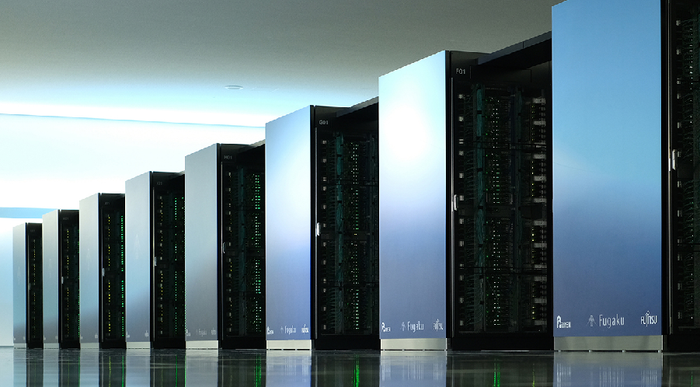
Connects decision-makers and solutions creators to what's next in quantum computing
Quantum Policy Expands into Global Supply Chain
Q&A with D-Wave’s Allison Schwartz on the need for international cooperation
December 12, 2023
.webp?width=850&auto=webp&quality=95&format=jpg&disable=upscale)
Global governments are recognizing the importance of preparing for advances in quantum technology, both as an opportunity and a threat. This has been exemplified by the U.S. government recently reauthorizing the National Quantum Initiative Act and the U.K. government announcing its quantum industry strategy missions.
Allison Schwartz is vice president of global government relations and public affairs at North America-headquartered quantum computing hardware and software company D-Wave. Her role involves working with policymakers, parliamentarians and their staff in the U.S., U.K., Canada, Europe and around the globe.
Schwartz educates on what quantum technology is capable of doing and helps shape national and international quantum programs to ensure they incorporate the different quantum technologies that are available. She also carries out gap analysis, ensuring that if one country is doing useful research, other allied countries know about it.
In this Q&A, Schwartz shares her insights into what’s next for the National Quantum Initiative Act and the importance of global quantum policies.
What was your involvement with the U.S. National Quantum Initiative Act and other national programs?
I've been involved in Canada's National Quantum Strategy, the U.S. National Quantum Initiative Act and in the United Kingdom's Quantum Missions.
The National Quantum Initiative Act originally passed in 2018, but it was always set to be a 10-year program with reauthorization after five years. The reason the U.S. government sets things up like this is to mandate oversight and modifications to programs especially when it comes to emerging technologies.
Since 2018, so much advancement has happened. The first quantum computers became available on the cloud, quantum hardware systems started to get bigger and more powerful, you have the software stack, the hybrid solver, the ability to do quantum hybrid applications. All of this has happened over the past five years.
A lot of the work in the reauthorization was about how to course-correct. How do we expand our focus? How do we bring in these near-term use cases for all the quantum technologies – annealing, gate and hybrid – as well as support the fundamental research on error correction and coherence and things that are still critically important to the problems that you solve?
How do you help legislators understand quantum technology?
The interesting thing about quantum is it's bipartisan. Quantum is so nuanced and there is not one elected official in the U.S. government, or on their staff, who is a quantum expert. Some technology expert folks are fellows, but that may only be a one- or two-year fellowship to work for members of Congress.
You'll have witnesses come and testify and the members of Congress don't know the right questions to ask or understand what's being discussed. There are aspects of working with politicians and their staff to help get them up to speed but they’re never going to be quantum experts.
Is there a carrot and stick approach, balancing benefitting the domestic economy while keeping up with competing nations?
Yeah, absolutely. There’s also a national security aspect. The Biden administration listed quantum and other emerging technologies as a national security imperative in a few executive orders.
But in the U.S., U.K. and Canada, no country or region owns an entire global supply chain, so we must do this through international cooperation. This new authorization brought in the U.S. State Department, which was critically important for negotiating international agreements.
It’s no longer just international academic exchange, it is expanding into the supply chain. You're using European cryogenic technology because we don't have the same cryogenics in the U.S., but we have chip manufacturing that Europe doesn't have. It’s also working with international cloud access and things like that.
What have been the effects of emerging technology export controls?
The interesting thing with export control is that they look at what the end user is utilizing the technology for. We think that that is the right approach because the different components – for example, cryogenic technology – are not the right trigger point. It's more about ensuring nefarious actors aren't using the technology in a nefarious manner. As well as sanctions and export controls, there are regulatory triggers to prevent this
In terms of international agreements, the U.S. has the U.K., the E.U., Germany, Canada, Japan and Australia. China doesn't have any of that. We have these open cloud platforms – the D-Wave system is available in 39 countries, including the whole of Europe, Israel, Australia, Singapore and a few other parts of Asia listing for Australia. But China had to create its own cloud platform because they weren't able to innovate with like-minded allies.
Away from the policy side, what public-sector quantum use cases are there?
Part of my role is to do with use cases, especially as they relate to the public sector, whether they're looking to tackle sustainability and get closer to a net zero, utilize a quantum computer to potentially reduce CO2 emissions or optimize an emergency response supply chain.
When you talk to the quantum officers because they are scientists looking at the hardware, almost all of them will say we can't do anything with the technology today. But when we talk to the folks who need the system, they go oh wait, you can optimize a pier at the Port of Los Angeles. I need that for emergency response. I need that for my airport. I need that for my port in Canada.
The cool thing about the National Quantum Initiative is they've brought in other parts of the government. Not just the Office of Science and NIST but also the Department of Homeland Security, the State Department, NASA and the National Oceanic and Atmospheric Administration, which is doing quantum weather modeling. These are different parts of the government that are end users, not just the ones who are scientifically curious about the hardware.
You May Also Like




